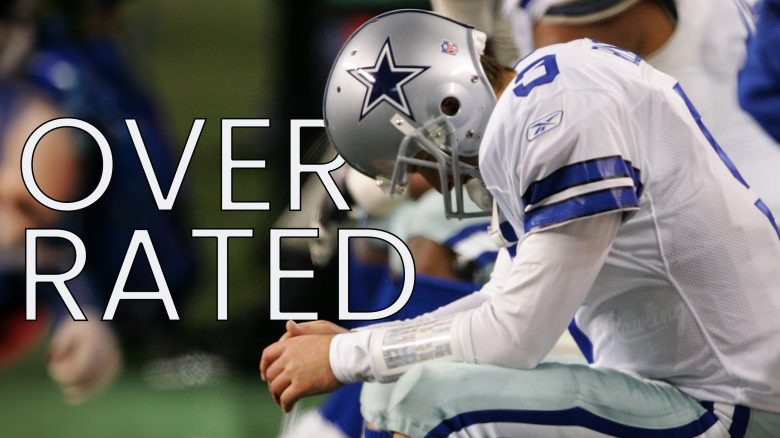
The debate over the most overrated quarterbacks in NFL history is always subjective, often influenced by factors like media attention, hype, team success and individual statistics that may or may not reflect their actual impact on the field.
In some cases, quarterbacks who played in highly successful systems or had strong supporting casts can receive more credit than they might individually deserve, creating a perception gap between the actual player and the one represented in accolades or fan narratives.
High-profile quarterbacks are often celebrated based on a few memorable performances or clutch plays, while less consistent performances can be overlooked. With football being one of the most media-driven sports, it’s also common for the public to rally around charismatic QBs, or those associated with iconic teams or moments.
While some quarterbacks have rightfully earned their status among the game’s elite, others have garnered reputations that don’t fully align with their actual impact, effectiveness or consistency.
Below are 10 players we feel meet these criteria:
10. Terry Bradshaw
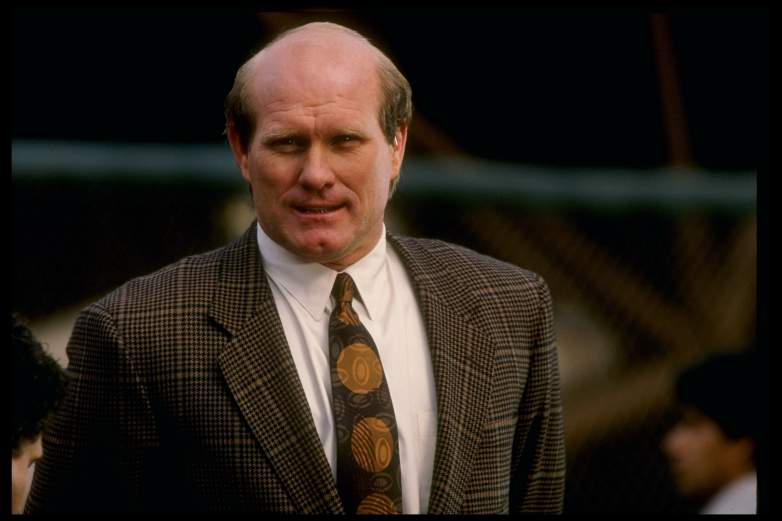
GettyFormer Pittsburgh Steelers quarterback Terry Bradshaw.
Yes, Terry Bradshaw won four Super Bowl with the Pittsburgh Steelers. It’s also true he boasts a 14-5 record as a starter in the postseason. But it’s fair to suggest that much of his success came because the Steelers had one of the best defenses in NFL history in the 1970s. For example — Pittsburgh’s legendary “Steel Curtain” defense straight up terrorized opposing offenses — in 1976, the unit didn’t allow a single touchdown in eight of its 14 games. We think it’s safe to say Bradshaw reaped the benefits of playing with that type of fierce ‘D.’
Additionally, Bradshaw was inconsistent during the regular season. He finished his career with a modest 51.9% completion rate and a 212-to-210 touchdown-to-interception ratio, numbers that fall short compared to modern standards and even his contemporaries. Bradshaw’s passer rating of 70.9 is also considerably lower than other quarterbacks in the Hall of Fame, which underscores his inefficiency as a passer despite his success in big games.
9. Troy Aikman
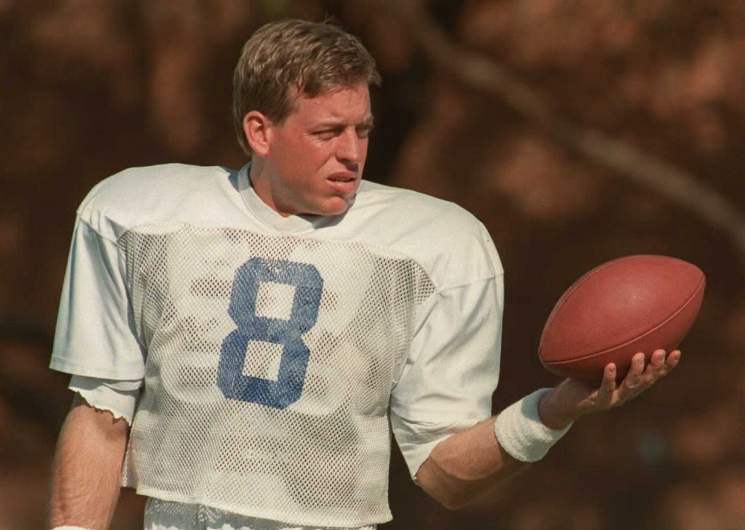
GettyEx-Dallas Cowboys quarterback Troy Aikman.
Here’s another prime example of a QB’s success being largely attributed to the strength of his supporting cast. With the Dallas Cowboys in the 1990s, Troy Aikman played on a team that boasted Hall of Fame talents such as Emmitt Smith and Michael Irvin, as well as a dominant offensive line, which allowed him to thrive in a structured and highly favorable environment. While Aikman won three Super Bowl titles with the Cowboys (1993, 1994, and 1996), his individual statistics do not stand out compared to other top quarterbacks of his era.
For example, over his career, he threw 165 touchdowns, also tossing 141 interceptions — not exactly an impressive ratio. His highest single-season touchdown count was only 23, a modest figure compared to the achievements of contemporaries like Steve Young or Dan Marino. In fact, Aikman threw more than 20 TD passes just once in his 12-year career, making him a solid contender for overrated status.
8. Ken Stabler
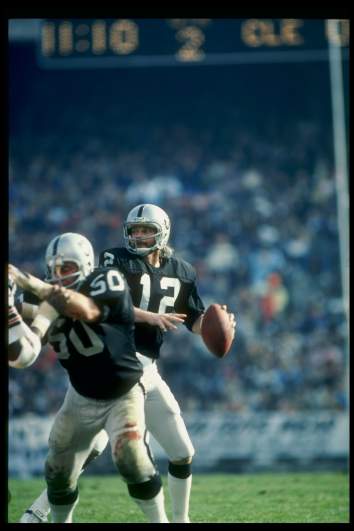
GettyFormer Raiders QB Ken Stabler.
Known for his fearless playing style, Ken “The Snake” Stabler brought excitement to the game, to be sure, but his risk-taking approach often led to frequent turnovers. Stabler threw 222 interceptions over his 15-year career, finishing with a TD-to-INT ratio of 194-222, which places him among the lowest ratios for quarterbacks in the Hall of Fame.
His career passer rating of 75.3 is modest by HoF standards, suggesting his achievements might not fully justify his inclusion among the elite. By comparison, contemporaries like Roger Staubach and Fran Tarkenton boasted more consistent stats and better efficiency. While he did lead the Raiders to a Super Bowl victory in 1977, his induction into the Hall in 2016 stirred debate precisely because his numbers fall short compared to other HoF QBs and some of his own era.
7. Drew Bledsoe
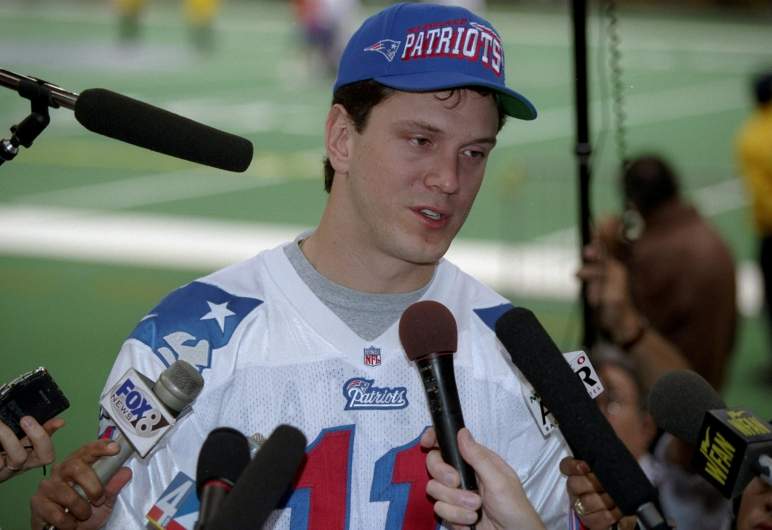
GettyEx-Patriots quarterback Drew Bledsoe.
From 1993 until 2006, QB Drew Bledsoe started 194 games for the New England Patriots, Buffalo Bills and Dallas Cowboys. Bledsoe threw for a lot of yards (44,611), but his effectiveness often lacked the consistency and the adaptability required of an elite quarterback. His career passer rating of 77.1, considerably lower than many of his contemporaries, underscores a longstanding struggle with accuracy and efficiency. His career completion percentage of 57.2% also reveals that his passing style, though visually impressive, didn’t always yield high-percentage plays.
And, fair or not, Bledsoe’s legacy will always be partially inflated by his role as the guy Tom Brady replaced in New England. Bledsoe’s injury in 2001 allowed Brady to step in, ultimately leading the Patriots to a Super Bowl and an era of dominance. The juxtaposition between Bledsoe’s relative inconsistency and Brady’s precision and success has cast a shadow on Bledsoe’s legacy, revealing what the Patriots could achieve with a more adaptable quarterback.
6. Dan Fouts
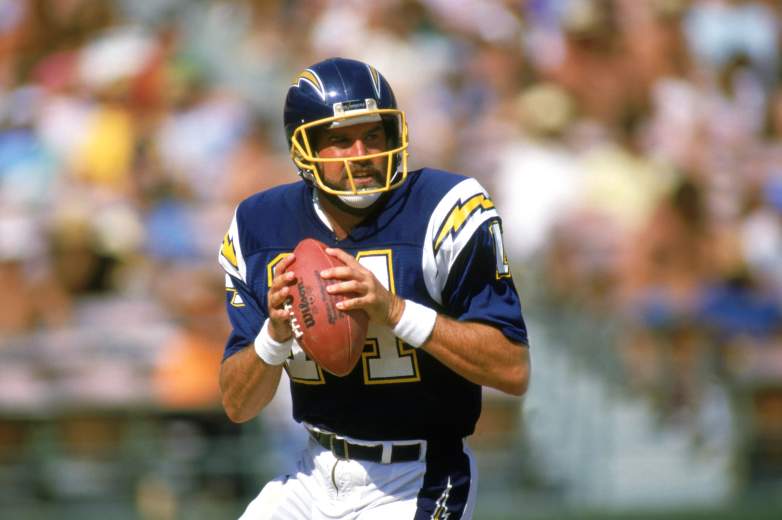
GettyEx-Chargers QB Dan Fouts.
Over his 15-year career with the then-San Diego Chargers, Dan Fouts threw for over 43,000 yards, showcasing a big arm. But in big games, his arm seemed much smaller. Fouts played in 10 playoff games, winning just three of them, with a playoff passer rating of 70.0, far below his regular-season average of 80.2. Additionally, while he threw for over 4,000 yards in three consecutive seasons, his stats may be a bit padded.
The Chargers’ “Air Coryell” offense, which emphasized deep, vertical passing and dynamic receiver routes, allowed Fouts to pile up yardage in ways few quarterbacks of his era could. But he also threw 242 interceptions over his career, averaging nearly 1.5 interceptions per game, which is high compared to other notable quarterbacks of his era. This turnover issue undermined his team’s ability to close out games, a crucial factor in the Chargers’ struggles in high-pressure scenarios.
5. Brett Favre
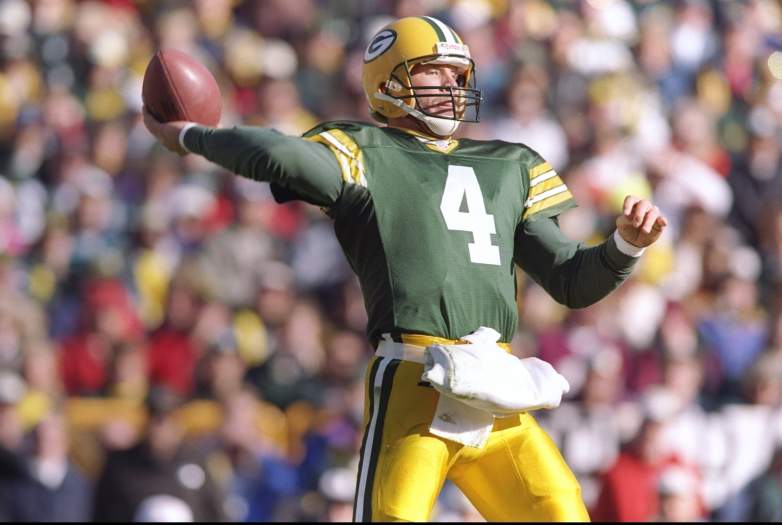
GettyEx=Packers quarterback Brett Favre.
Brett Favre is often considered one of the NFL’s legendary quarterbacks due to his ironman streak, strong arm and passionate play style. However, the former Green Bay Packers star’s on-field decision-making and high turnover rate have led some analysts to view him as one of the most overrated quarterbacks in NFL history. Favre holds the record for the most interceptions thrown in a career with 336 — 59 more than the next closest player.
While Favre’s career totals in passing yards (71,838) and touchdowns (508) are impressive, they were also inflated by the sheer length of his 20-year career rather than exceptional performance in each season. Statistically, he was often outperformed by contemporaries such as Peyton Manning and Tom Brady in terms of efficiency and decision-making. Furthermore, when advanced metrics like passer rating and interception percentage are considered, Favre falls short of many of his peers.
4. Tony Romo
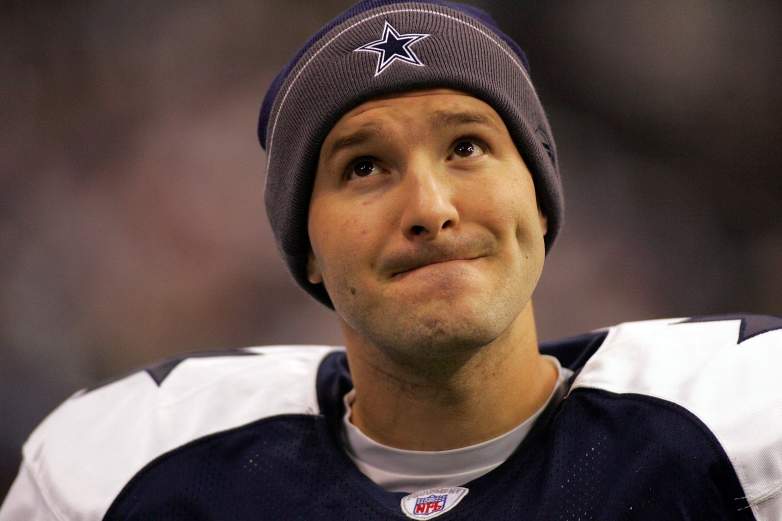
GettyEx-Cowboys quarterback Tony Romo.
While Tony Romo boasts impressive career stats, including a franchise-leading 34,183 passing yards and 248 touchdowns for the Dallas Cowboys, his career is often marred by critical late-game errors. Romo’s inability to secure key victories in the playoffs despite the Cowboys’ talent-rich rosters and his own statistical achievements suggests he fell short in elevating his team when it mattered most.
Take his infamous botched hold against the Seattle Seahawks in the 2006 Wild Card game, for example. Fair or not, that play helped cement a narrative of underachievement that critics argue overshadows his regular-season contributions. A four-time Pro Bowler, Romo rarely succeeded against elite competition, especially when the stakes were highest. In his career, Romo went 2-4 in playoff games, never making it past the NFC Championship.
3. Joe Namath
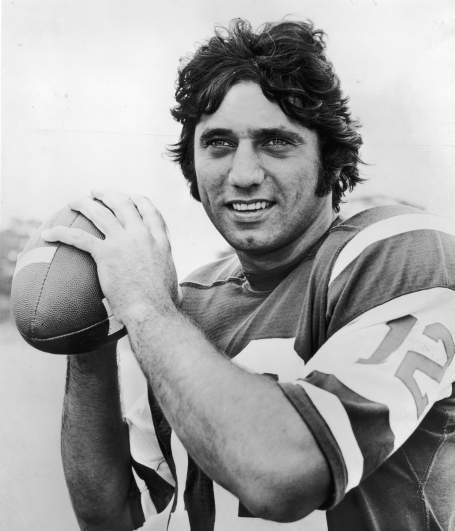
GettyEx-Jets QB Joe Namath.
Though he famously led the New York Jets to a victory in Super Bowl 3 and made his “guarantee” prior to that win, this achievement alone does not define a Hall of Fame-worthy career. Namath’s career statistics reveal significant struggles, including a 50.1 career completion percentage and 47 more interceptions (220) than touchdowns (173). His career passer rating of 65.5 is also notably low, especially when compared to other Hall of Fame QBs.
Although his knee injuries were serious and affected his mobility — check out the knee brace he played with — more than anything, Namath’s playing style contributed to inconsistent results. He had four winning seasons over his 13-year career (in which he started more than four games), reflecting a lack of consistent team success. His high number of turnovers also hurt his team’s chances; for example, his 1967 season ended with an astonishing 28 interceptions, and he led the NFL in most INTs thrown four different times.
2. Bob Griese
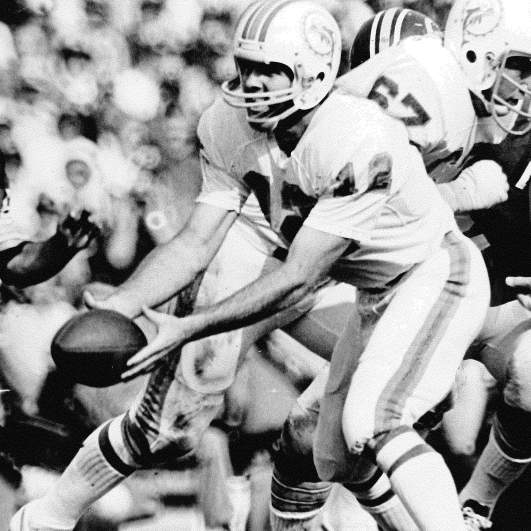
GettyEx-Dolphins QB Bob Griese.
Bob Griese is often regarded as one of the greatest quarterbacks of his era, primarily due to his role in leading the Miami Dolphins to two consecutive Super Bowl titles, including the team’s famed 1972 undefeated season. But during that historic 1972 season, Griese played in only six games due to injury, with backup Earl Morrall effectively guiding the team, making Griese’s role that year a tad overblown.
His numbers also aren’t the stuff legends are made of. Griese’s statistics, especially in the context of the modern passing game, are relatively modest. For instance, he threw for just 25,092 yards and 192 touchdowns over his 14-year career, numbers that are not impressive when compared to other Hall of Fame signal-callers. Even during his peak, Griese was more of a game manager than a prolific passer; his career high for passing yards in a season was only 2,473, a total eclipsed by numerous quarterbacks in that era.
1. Eli Manning
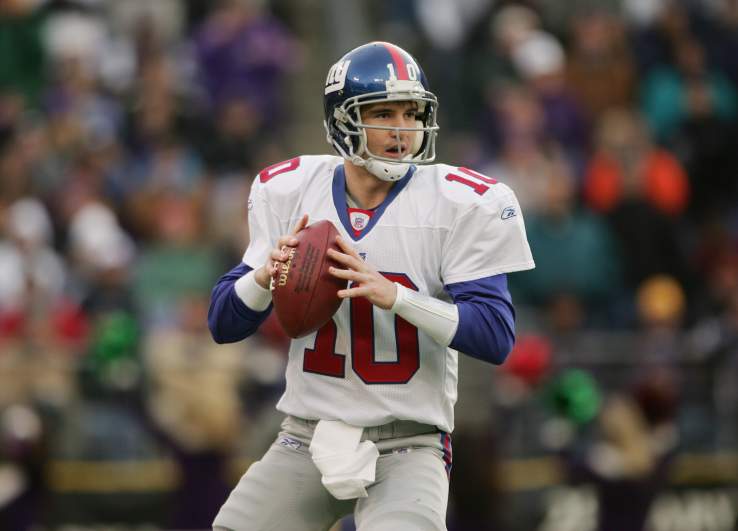
GettyEx-Giants quarterback Eli Manning.
Former New York Giants QB Eli Manning gets our top spot for several reasons. Manning led the league in interceptions three times (2007, 2010, 2013), which impacted the team’s success in regular seasons. His 244 career interceptions place him near the top of the all-time interception leaders list, which further reinforces questions around his decision-making and overall accuracy.
Over his 16-year career, Manning amassed a 117-117 record, which indicates that he was just as likely to lose games as he was to win them. Unlike truly elite quarterbacks who consistently elevate their teams, Manning struggled to bring the Giants consistent success outside of his Super Bowl-winning seasons. About those two Super Bowl rings — in both wins, Manning benefitted from elite defensive performances, along with one of the best catches in Super Bowl history. Thus, it’s fair to suggest that his two rings do not necessarily reflect his performance, but rather the incredible play of his teammates.
The list isn’t over yet! See our pick for Number 11 HERE. Sound off to let us know who we missed!
Comments
The 10 Most Overrated NFL Quarterbacks All Time, Ranked